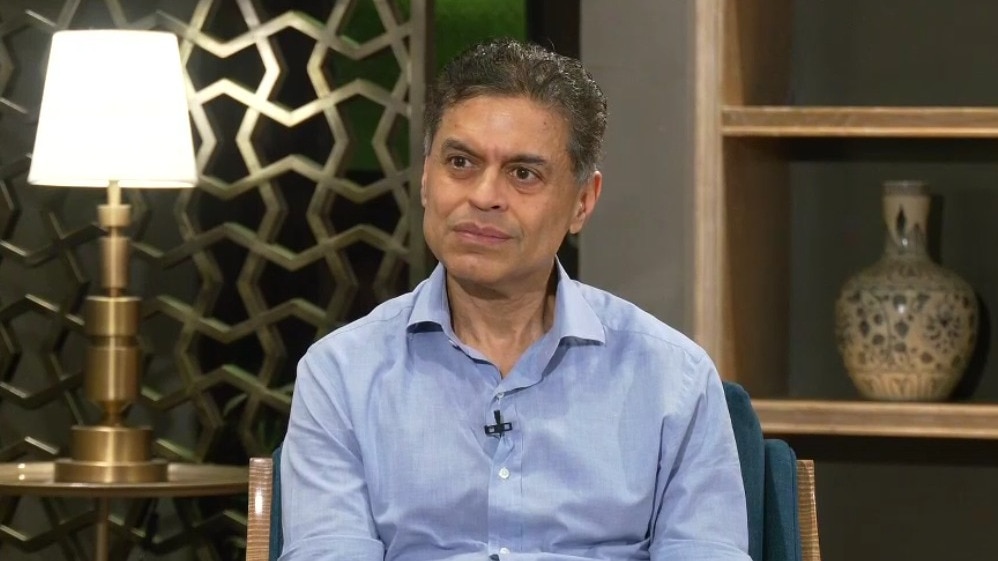Key events Show key events only Please turn on JavaScript to use this feature

Melissa Davey
The Children’s Commissioner Anne Hollonds will publicly launch her grim report on the reality of Australia’s youth justice system at parliament house in Canberra on Thursday.
As first reported by Guardian Australia in July, the report details disabled children in detention being allegedly kept “in cages” in police watch houses. Hollonds interviewed 150 children in the youth justice system and found that prisons detaining children are where “the most egregious breaches of human rights are occurring in this country”.
The report calls for a ban on solitary confinement practices in child detention facilities, and the establishment of a national taskforce for reform of child justice systems.
Guardian Australia previously reported the high rates of children in detention with foetal alcohol spectrum disorder and other brain injuries.
The launch will be attended by Justice Reform Initiative Chair Robert Tickner, Law Council of Australia President Greg McIntyre, Australian Medical Association president Dr Danielle McMullen, and young people with lived experience.
McMullen said;
This report is an incredibly sobering read, as it contains many uncomfortable truths about youth justice in Australia — egregious human rights violations, the over-incarceration of First Nations children and young people dying in custody.”
She called for the report’s recommendations to be implemented, especially raising the age of criminal responsibility in all jurisdictions to 14 years.
Read more:
Good morning
Hello and welcome to the final sitting day for October – and the final joint sitting day until 18 November.
You are almost at the end of the parliamentary sitting year – there is just two joint sitting weeks left in the year and one week of estimates and house sitting – and then you are done! (And officially in election mode)
But there is a bit to get through until then – today is another attempt by the government to get people to focus back on the domestic agenda and what it says it has done. You’ve got acting prime minister Richard Marles with Anthony Albanese in Laos for the Asean conference so question time should be interesting.
You have Karen Middleton, Paul Karp, Daniel Hurst, Josh Butler and Sarah Basford Canales taking you through the parliament day and Mike Bowers who will take you there. He is already walking the hallways, working out what’s what. You also have me, Amy Remeikis on the blog with you and the entire Guardian brains trust at your disposal.
It’s a five coffee day. And absolutely a day for cake for breakfast.
Ready?
Let’s get into it.
University of Sydney spent $12m on contractors to sort staff underpayments

Caitlin Cassidy
The University of Sydney has spent millions of dollars more on external contractors and consultants – including PwC – calculating and administering liability for wage underpayments than it has paid out to staff, answers provided to the Greens have revealed.
In the answers to supplementary questions, provided to chair of the NSW education committee, Greens MLC Abigail Boyd, it was revealed the university had repaid 514 casual staff a total value of $2.8m as of last month, while across all “remediation work streams”, it had paid 10,692 professional staff a total value of $17.4m.
At the same time, the costs of its employee payment review program from 2020 to 2024 was $21.6m. External contractors, advisers and consultants had been engaged at a cost of $12.3m.
In its latest annual report, the university anticipated liabilities for wage underpayments of $7.4m to ongoing employees, and a further $70.1m to casual academic staff - the vast majority of which remained unpaid.
Boyd said the latest revelations were a “damning indictment” speaking to a “broken governance culture” at prestigious universities.
They’ve gotten away with so much, for so long, with next to no accountability. It’s past time we had a look under the hood of these public institutions, with a proper inquiry into their governance.
A spokesperson for the University of Sydney said paying people for their work was “imperative” and as was standard, it had brought in consultants to provide independent advice alongside a review.
We are continuing to identify and remediate any past underpayments. The bulk of the work to date has been investigating and calculating incidences of underpayment across this period, ahead of remediation and payment of backpay.
Our priority is to pay people as quickly as possible however this is complex and important work, and it must be accurate. Multiple sources of historic information need to be analysed over a period of 13 semesters to correctly classify the work completed, identify any incorrect payments and calculate the individual remediation amounts.

Caitlin Cassidy
Labor to introduce school funding reforms
The federal government will today introduce legislation allowing the commonwealth to provide extra funding to public schools in excess of 20%. If passed, the funding level would become a floor, not a ceiling, as it has been since changes enacted by the Turnbull government in 2017.
The bill would bring the federal government a step closer to fully funding public schools – but is likely to require the support of the Coalition if the Greens and a band of crossbenchers continue to press the federal government to increase their funding offer to 25% of the Schooling Resource Standard (SRS).
The SRS, agreed to by governments as part of Gonski reforms more than a decade ago, is the minimum dollar amount required to provide a baseline education to students. Data from the Australian Curriculum, Assessment and Reporting Authority (Acara) shows 98% of public schools are underfunded and the majority of private schools are overfunded.
The education minister, Jason Clare, has put a 2.5% increase on the table, while Victoria, NSW and South Australia are holding out for 5% to cover the remaining funding gap.
Clare said:
At the moment, the maximum the commonwealth government can provide to public schools is 20% of the SRS … this landmark legislation allows the Albanese government to deliver more funding to public schools and tie that funding to practical reforms to help students catch up, keep up and finish school.
A ground-breaking social media summit that begins in Sydney today must consider what mental health impacts will flow if kids are banned from platforms, advocates say.
AAP reports that a two-day, jointly hosted summit between the NSW and South Australian governments starts in Sydney today, when discussions are expected to focus on the details of the youth ban rather than whether it will be introduced.
Prime Minister Anthony Albanese and a host of state leaders - including NSW Premier Chris Minns and SA Premier Peter Malinauskas - have backed an age limit but are yet to disclose where the cut-off should be set.
However youth mental health organisation ReachOut warned removing social media would block access to what has become a key support for a younger generation.
Read more in our preview story:
The summit will shift to Adelaide on Friday.
Robodebt royal commission recommendations to be legislated
Attempts to hide the next robodebt scandal from independent oversight of the public service will be punished by thousands of dollars in fines, the Australian Associated Press reports.
Public servents and agency bosses would be bound to help investigations while those stonewalling access to files could be dragged to court. The changes proposed by the Albanese government are aimed at ensuring commonwealth agencies are subject to stronger and more rigorous scrutiny.
They fulfil two recommendations from the robodebt royal commission.
“The robodebt royal commission made it clear that strong and effective oversight is necessary to safeguard the community in their dealings with government,” the attorney general, Mark Dreyfus, said. “Trust in government depends on this.”
Under the proposal, an offence would be created for withholding reasonable facilities and assistance from the commonwealth ombudsman. Anyone penalised for breaking this law could be fined more than $3000.
The watchdog would be able to access agency records remotely under enhanced information-gathering powers. The tax ombudsman would also receive the same powers.
Welcome
Good morning and welcome to our rolling news coverage from Canberra. I’m Martin Farrer with the top overnight stories before Amy Remeikis gets into the main action soon.
One of the most senior advisers in the Albanese government claims she has effectively been sacked from her job as chief of staff to deputy prime minister Richard Marles. Jo Tarnawsky claims she has been barred from her office and has had no direct engagement with her boss in five months.
In a separate development, the head of the Department of Parliamentary Services has announced a sudden “period of leave”, leaving a former anti-corruption commissioner in charge of the department. The secretary, Rob Stefanic, announced to staff in an email yesterday that he had made a decision to “take a period of leave”.
A Senate committee scrutinising Labor’s international student cap has recommended the bill be passed with significant amendments, including removing the ability to set course-level enrolment limits. It also wanted to give universities the power to exempt students from some countries.
The government has proposed new rules for the public service aimed at preventing another Robodebt scandal from occurring – more on that soon.
And a social media summit begins today that will tackle the fraught question of whether there should be a social media ban for teenagers.

 1 month ago
1 month ago

















